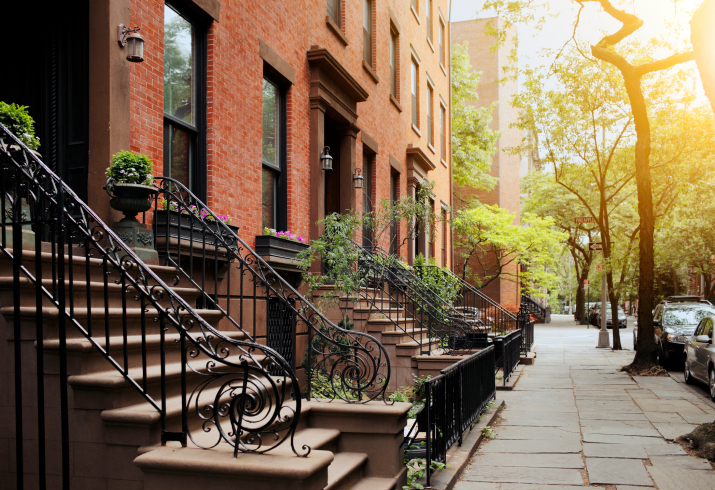Buying A New Home In The City? The Pros and Cons Of Buying A Home On A Busy Street
 Finding the perfect property is an exciting feeling, but its relative location can leave a lot of room for worry. Buying a home in the city is a venture that comes with an entire assortment of advantages and disadvantages. While the location might be close in proximity to businesses, services, and other people, it’s easy to worry about the other aspects of city living. What are the great and not-so-great facets of living on a busy street?
Finding the perfect property is an exciting feeling, but its relative location can leave a lot of room for worry. Buying a home in the city is a venture that comes with an entire assortment of advantages and disadvantages. While the location might be close in proximity to businesses, services, and other people, it’s easy to worry about the other aspects of city living. What are the great and not-so-great facets of living on a busy street?
Pro: Access to Businesses and Schools
The chances are high that anyone living in a busy area is within walking distance of any store, shop, or service. Likewise, children have a range of options for education in busier areas; there are often multiple schools to choose from in any given busy area.
Pro: Access to Many Internet/TV Providers
In highly populated areas, a large number of internet and TV providers can co-exist. This means residents have a number of options when the time comes to choose providers. Luckily, it’s often difficult for providers monopolize densely populated areas.
Pro: Sense of Community
Many people that live in busy areas will be quick to share that they adore the sense of community. In fact, a large population is often one of the biggest reasons that people choose to move to bigger areas.
Con: Noise Level
As a street sees more activity, there’s no doubt that the noise level will also be a bit higher than usual. Residents that own homes on busy streets not only hear lots of noise from outside traffic, but they also often hear police sirens, animals, conversation, and more.
Con: Higher Price
It’s no secret that busy areas are a bit more expensive to live in. As anyone would expect, the convenience of city living comes with a higher price. Expect to hand over quite a bit more for a property in a highly populated area.
Con: Parking
Depending on the location of the neighborhood, parking can also be a problem. If street parking isn’t allowed, a resident in a big city might have to sacrifice their vehicle or park it a long distance from the property. This can be off-putting for many buyers.
If you’re on the fence about purchasing a property on a busy street, get more information from your trusted real estate agent before making a decision. A professional agent can provide valuable information about the property, neighborhood, chances for resale in the future, and much more. Don’t proceed any further without an agent’s advice!
 When you first bought your home a few years ago, perhaps you started off with a 30 year mortgage. Now, you are considering refinancing and changing it to a 20 year or even a 15 year mortgage.
When you first bought your home a few years ago, perhaps you started off with a 30 year mortgage. Now, you are considering refinancing and changing it to a 20 year or even a 15 year mortgage. If you’re entering the real estate investment market for the first time, you’re embarking on a great adventure – and with a solid plan, you can turn a tidy profit on your investment.
If you’re entering the real estate investment market for the first time, you’re embarking on a great adventure – and with a solid plan, you can turn a tidy profit on your investment.